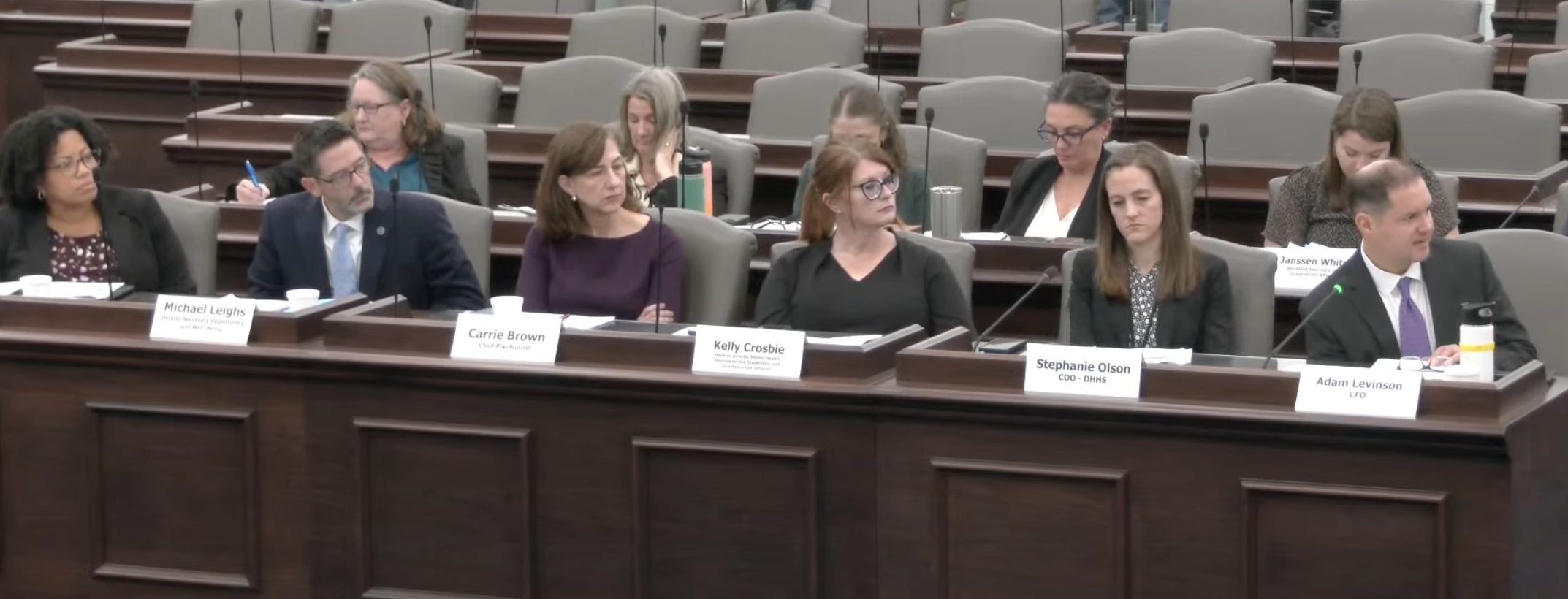By Jordan Meadows
Staff Writer
A new piece of legislation, Senate Bill 403, is under consideration this week in the North Carolina General Assembly, aiming to address critical gaps in Medicaid funding left by the 2023-2025 state budget, given that the NC General Assembly has not yet passed the final 2025‑27 budget.
If approved, SB403 would inject an additional $192 million into Medicaid, bringing the total program funding to $792 million for fiscal year 2026—still short of the $819 million annually requested by the North Carolina Department of Health and Human Services (NCDHHS).
This effort comes in response to widespread concern following the passage of House Bill 125 in September, which allocated just $600 million annually for Medicaid for 2026 and 2027. With federal COVID-19 relief funds, such as those provided by the American Rescue Plan Act (ARPA), no longer available to supplement shortfalls, NCDHHS has warned that it will be forced to cut $319 million from operations. This includes potential rate cuts to service providers — a move that could impact thousands of North Carolinians who rely on Medicaid services.
Senate Bill 403 also introduces several structural and administrative changes aimed at improving efficiency and accountability.
Personnel reductions: A targeted elimination of a vacant position at DHHS and a 5% cut in vacant positions across other gubernatorial state agencies. Coverage adjustments: Medicaid would no longer cover GLP-1 drugs for weight loss purposes, although coverage would continue for medically necessary, federally mandated uses.
It will also include oversight of redeterminations: The State Auditor would be directed to examine the redetermination processes for both Medicaid and SNAP to reduce backlogs. New standards for timeliness and accuracy would be established, along with an enforcement mechanism to ensure county-level compliance. And Medicaid redeterminations would also be added under the oversight scope of Rylan’s Law, a 2017 law providing a blueprint to create statewide capacity over social services and child welfare programs.
During Tuesday’s Joint Legislative Oversight Committee on Health and Human Services, co-chaired by Rep. Potts (R-Davidson), state officials shed light on the growing strain faced by NCDHHS and its affiliated agencies.
Karen Burkes, Deputy Secretary for Facilities and Licensure, and DHHS COO Stephanie Olson testified to worsening vacancy rates and budget limitations that are affecting service delivery.
The Division of Health Services Regulation (DHSR) reported a 12% increase in its vacancy rate over the past year, with higher rates particularly in mental health services. The department is the highest in terms of lapsed salaries, money that is budgeted for positions that remain unfilled.
Burkes revealed that in many cases, it takes months for new hires to go from their first interview to their first day on the job—a delay that leads recent graduates to accept faster offers elsewhere. Background checks and procedural steps have contributed to these delays. To help mitigate the problem, officials are considering offering more flexible work schedules and increasing the number of applicants onboarded at once.
“There is a baked-in slush fund,” Rep. Reeder (R-Pitt) said during the meeting, referring to how DHHS uses lapsed salary funds for other operational costs. Reeder pressed the department to provide transparency on how those funds are being spent, with DHHS agreeing to deliver a detailed list.
The budget proposed for FY26 falls about $2.5 million short of what the department says it needs, further exacerbating resource constraints.
Broughton Hospital was cited as an example of underutilized resources. Some beds have never been filled, and a significant number of positions remain frozen or unfilled. Rep. Blackwell (R-Burke) questioned whether these positions were being left open due to the inability to fill them or deliberate strategic decisions. He pressed for clearer data on how many nurses are needed statewide.
Burkes responded that the state is trying to recruit from local colleges, universities, and neighboring states—especially in border areas—but that despite salary increases, the problem has “slowly become worse.” She added that student loan forgiveness is one incentive being offered to attract new hires.
Olson, when questioned by Sen. Waddell (D-Mecklenburg) about recruiting efforts at HBCUs, confirmed that DHHS has made such efforts and denied that diversity, equity, and inclusion (DEI) policies have affected hiring outcomes.
As legislators weigh Senate Bill 403, they are confronted with not only a financial shortfall but also deep-rooted operational challenges in North Carolina’s healthcare infrastructure. While American Rescue Plan Appropriations (ARPA) funding provided temporary relief and enabled innovations like monthly public webinars and a centralized bed registry, the cutting of aid has left significant gaps.
Meanwhile, universities like Fayetteville State University are being lauded as examples of institutions successfully creating pathways into the healthcare workforce, especially for students from underrepresented backgrounds.

